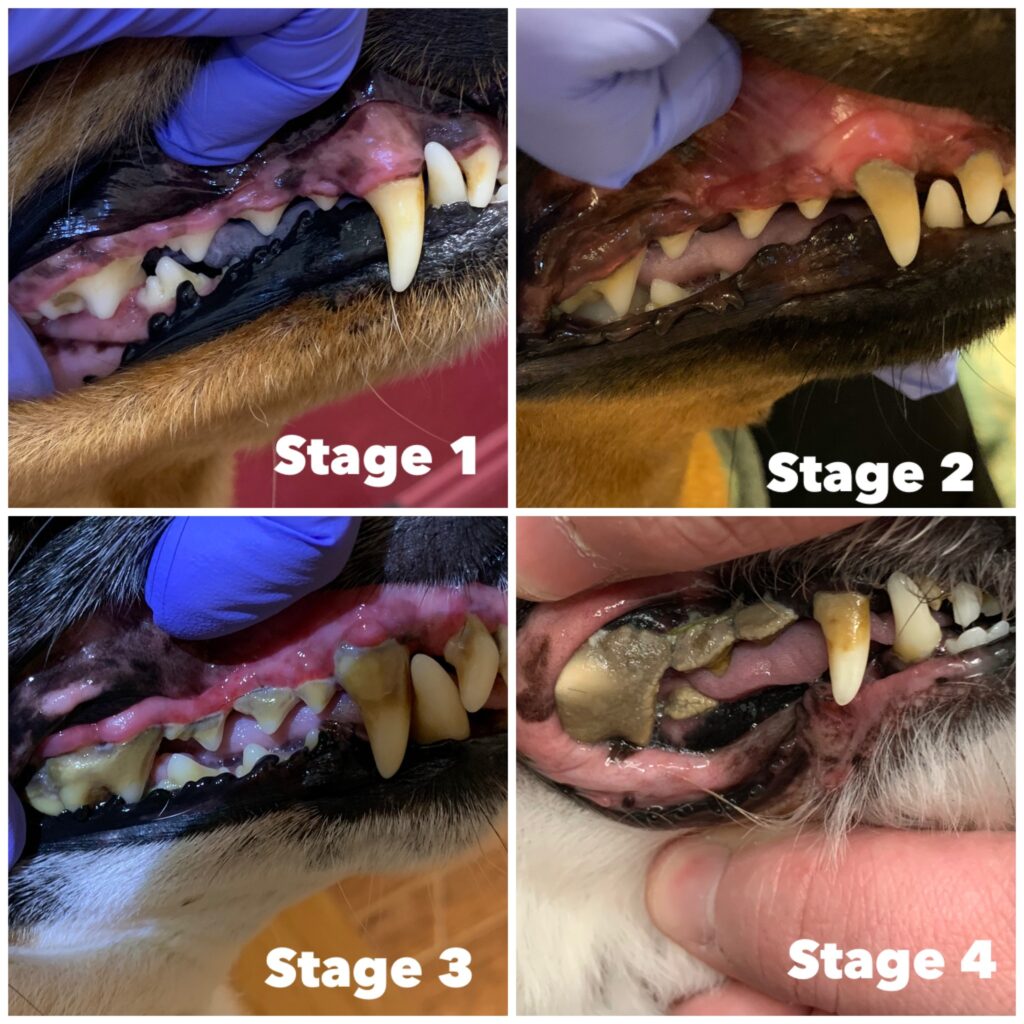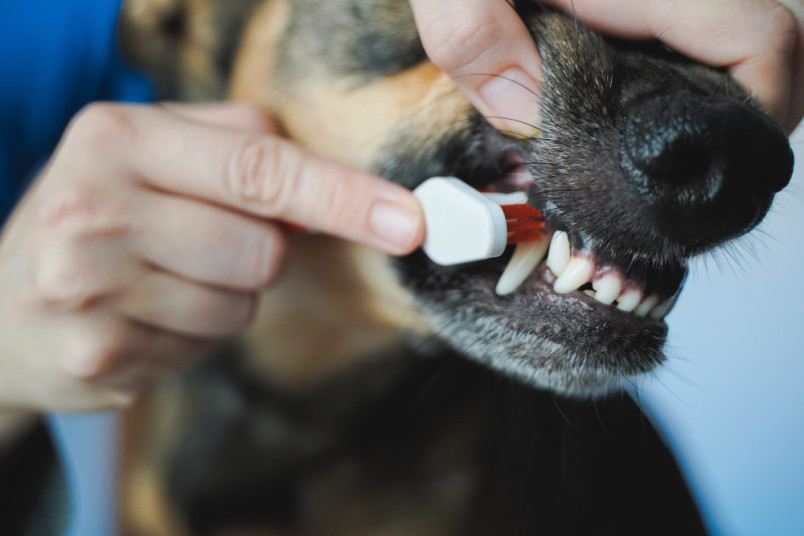Dog Teeth Cleaning Cost: What to Expect in 2024 | Save Money on Canine Dental Care
Discover the costs and benefits of dog teeth cleaning. Understand key factors influencing prices, local insights, and how regular care ensures long-term health.
Did you know that neglecting your dog’s dental health could lead to costly problems down the road? Just like humans, our furry friends need regular teeth cleaning to maintain their overall well-being. But how much does it actually cost to keep those canine pearly whites sparkling?
We’ll jump into the industry of dog teeth cleaning costs, exploring the factors that influence prices and what you can expect to pay. From standard cleanings to more complex procedures, we’ll break down the expenses so you can make informed decisions about your pup’s dental care. Whether you’re a first-time dog owner or a seasoned pet parent, understanding these costs is crucial for budgeting and ensuring your four-legged companion stays healthy and happy for years to come.
Understanding Dog Teeth Cleaning Costs
Dog teeth cleaning is an essential aspect of canine health care, but the costs can vary significantly. Several factors influence the price, and understanding these can help pet owners budget effectively for their dog’s dental care.
Factors Affecting the Price
The cost of dog teeth cleaning is influenced by various elements:
- Geographical location: Prices differ based on where you live. For example, in Los Angeles, CA, the cost averages around $465.95, while in Miami, FL, it’s about $488.95.
- Veterinarian type: General practitioner veterinarians typically charge between $170 to $350, whereas board-certified veterinary dentists may charge up to $4,000.
- Dog’s size and age: Larger dogs or older canines often require more extensive care, increasing the overall cost.
- Severity of dental issues: More complex procedures or additional treatments can raise the price.
- Anesthesia requirements: The type and duration of anesthesia used during the cleaning process affect the total cost.
Average Cost Range
The average cost range for dog teeth cleaning varies:
- Standard cleaning: Typically falls between $300 to $700, depending on location and complexity.
- General practitioner vs. specialist: General veterinarians charge $170 to $350, while board-certified dentists may charge up to $4,000.
- Additional procedures: Tooth extractions or other dental work can increase costs significantly.
- Geographical variations: Urban areas tend to have higher prices compared to rural locations.
- Pre-cleaning examinations: Some veterinarians include pre-cleaning exams in their overall cost, while others charge separately.
Remember, investing in regular dental cleanings can prevent more costly dental issues in the future, potentially saving money in the long run.
What’s Included in Professional Dog Teeth Cleaning
Professional dog teeth cleaning is a comprehensive procedure that involves several steps to ensure your pet’s oral health. Here’s what you can expect during a typical cleaning session:
Standard Procedures
Professional dog teeth cleaning includes several standard procedures:
- Initial consultation: A veterinarian examines your dog’s oral health before the cleaning.
- Pre-cleaning oral exam: Often involves dental X-rays to identify issues like cavities, infections, or bone damage.
- Anesthesia administration: General anesthesia keeps your dog still and comfortable during the procedure.
- Scaling and polishing: Scaling removes plaque, tartar, and calcium deposits from teeth, both above and below the gumline. Polishing smooths tooth surfaces to prevent future tartar buildup.
- After-care medication: Prescriptions may be given to manage pain or prevent infection post-procedure.
These standard procedures ensure a thorough cleaning and assessment of your dog’s dental health.
Additional Services
Some clinics offer additional services during professional dog teeth cleaning:
- Advanced dental X-rays: While sometimes included in standard costs, these may be charged separately for a more detailed view of your dog’s oral structures.
- Tooth extractions: If severe decay or damage is found, tooth extraction may be necessary.
- Periodontal treatments: For dogs with gum disease, specialized treatments may be recommended.
- Fluoride treatments: Applied to strengthen tooth enamel and reduce sensitivity.
- Sealants: Used to protect teeth from future decay.
- Oral cancer screening: A thorough examination to detect early signs of oral cancer.
These additional services enhance the overall dental care for your dog, addressing exact needs or preventive measures.

Benefits of Regular Canine Dental Cleaning
Regular dental cleaning for dogs offers many advantages that extend beyond just maintaining a healthy mouth. Here’s why it’s crucial to prioritize your canine companion’s oral health:
Prevents Periodontal Disease
Regular teeth cleanings significantly reduce the risk of periodontal disease in dogs. This condition, which affects the gums and supporting structures of the teeth, can lead to serious health complications if left untreated. Professional cleanings remove plaque and tartar buildup, preventing the progression of periodontal disease.
Improves Overall Health
Dental cleanings contribute to a dog’s overall well-being. Poor oral health has been linked to various systemic issues, including:
- Liver disease
- Heart disease
- Kidney problems
- Respiratory infections
By maintaining good oral hygiene through regular cleanings, we can help prevent these potentially life-threatening conditions.
Enhances Quality of Life
Clean, healthy teeth and gums improve a dog’s quality of life in several ways:
- Reduces pain and discomfort associated with dental issues
- Improves appetite and ability to eat comfortably
- Eliminates bad breath, improving the bond between dogs and their owners
Early Detection of Dental Issues
Professional cleanings allow veterinarians to identify and address dental problems early. During the cleaning process, they can detect:
- Broken or fractured teeth
- Oral tumors or cysts
- Signs of tooth decay
- Gum inflammation
Early detection and treatment of these issues can prevent more serious and costly dental problems in the future.
Cost-Effective in the Long Run
While regular dental cleanings may seem expensive, they’re often more cost-effective than treating advanced dental issues. Preventive care through routine cleanings can help avoid:
- Expensive tooth extractions
- Oral surgeries
- Treatment for systemic health issues caused by poor dental health
Extends Lifespan
By preventing serious health complications associated with poor oral hygiene, regular dental cleanings can contribute to a longer, healthier life for dogs.
| Benefit | Impact |
|---|---|
| Prevents periodontal disease | Reduces risk of gum and tooth loss |
| Improves overall health | Lowers chances of liver, heart, and kidney problems |
| Enhances quality of life | Reduces pain, improves appetite, eliminates bad breath |
| Enables early detection | Identifies dental issues before they become severe |
| Cost-effective | Avoids expensive treatments for advanced dental problems |
| Extends lifespan | Contributes to overall longevity and health |
Regular canine dental cleanings, typically recommended every 6 to 12 months depending on the dog’s individual needs, are an essential component of responsible pet ownership. By investing in routine dental care, we’re not just maintaining our dogs’ oral health, but also ensuring their overall well-being and longevity.
Frequency of Dog Teeth Cleaning
Professional dog teeth cleanings are typically recommended once every 6 to 12 months, depending on various factors. The frequency of cleanings is determined by:
- Breed: Some dog breeds are more prone to dental issues, requiring more frequent cleanings.
- Age: Older dogs may need more frequent cleanings due to increased risk of dental problems.
- Size: Smaller dogs often need more frequent cleanings than larger breeds.
- Dental history: Dogs with a history of dental issues may require more frequent cleanings.
Veterinarians assess each dog’s individual needs to determine the optimal cleaning schedule. Regular dental check-ups allow vets to monitor oral health and adjust cleaning frequency as necessary.
Professional cleanings performed by general practitioner veterinarians typically cost between $170 and $350. But, board-certified veterinary dentists may charge $500 to $4,000 or more, especially for advanced procedures.
The American Veterinary Medical Association and the American Animal Hospital Association recommend anesthesia-based cleanings for safety and efficacy. Anesthesia-free cleanings, while less expensive, are not recommended due to potential risks and reduced effectiveness.
Between professional cleanings, at-home dental care is crucial for maintaining good oral health. This includes:
- Regular brushing (2-3 times per week)
- Dental chews and toys
- Oral rinses or gels containing chlorhexidine
These at-home practices help reduce plaque buildup and extend the time between professional cleanings, potentially lowering long-term costs.
Dental disease severity significantly impacts cleaning frequency and cost. More severe tartar and plaque buildup, as well as additional dental problems like loose or infected teeth, can increase both the frequency of required cleanings and the cost per procedure.
Geographical location also affects cleaning costs, with prices ranging from $440 to $488 in different regions. Urban areas tend to have higher costs compared to rural locations.
By maintaining a regular cleaning schedule and practicing good at-home dental care, pet owners can help prevent more severe dental issues and potentially reduce the frequency and cost of professional cleanings over time.

Anesthesia vs. Anesthesia-Free Cleaning
When considering dog teeth cleaning, pet owners face two primary options: anesthesia-based cleaning and anesthesia-free cleaning. Each method has distinct characteristics and implications for both the dog’s health and the owner’s wallet.
Safety Considerations
Anesthesia-based cleaning is widely recommended by veterinary professionals for its safety and effectiveness. It allows for a thorough examination and treatment of all areas of the dog’s mouth, including hard-to-reach spots. The American Animal Hospital Association (AAHA) endorses this method, considering it the safest and most comprehensive approach to canine dental care.
Anesthesia-free dentistry, also known as non-anesthetic dentistry (NAD), is deemed unprofessional, unsafe, and ineffective by many veterinary organizations. This method poses several risks:
- Difficulty in reaching and cleaning inner tooth surfaces
- Inability to accurately diagnose or treat tooth decay
- Potential for accidental gum injuries if the dog startles
- Safety risks for veterinarians due to potential dog bites
Cost Differences
Anesthesia-based cleaning typically costs more than anesthesia-free options due to the use of general anesthesia and more comprehensive care. The average cost for anesthesia-based dog teeth cleaning ranges from $300 to $700, with general practitioners charging between $170 to $350.
Anesthesia-free cleaning might seem less expensive initially, but it’s important to consider the long-term costs. Since NAD is less thorough and may miss underlying issues, it can lead to more severe dental problems in the future, potentially resulting in higher veterinary bills.
Board-certified veterinary dentists may charge up to $4,000 for advanced anesthesia-based procedures, reflecting the higher level of expertise and care provided. While this cost is important, it ensures a thorough cleaning and allows for addressing any complex dental issues that may be present.
Pet Insurance Coverage for Dental Cleaning
Pet insurance coverage for dog teeth cleaning varies significantly among policies and providers. Understanding the nuances of dental coverage is crucial for pet owners considering insurance or planning dental procedures for their furry companions.
Standard Coverage
Most pet insurance policies don’t cover routine dental cleanings as they fall under preventative care. These procedures are typically considered part of regular maintenance rather than unexpected medical issues. But, many insurers offer coverage for dental treatments related to accidents or illnesses.
Wellness Plans
Some pet insurance companies provide wellness plans as add-ons to their standard policies. These plans often include coverage for routine dental care, including professional cleanings. While wellness plans can help offset the costs of regular dental maintenance, they also increase the overall insurance expenses.
Coverage for Dental Emergencies
Many pet insurance policies cover emergency dental procedures, such as extractions due to accidents or severe dental diseases. These treatments are usually considered medically necessary and fall under the accident and illness coverage of most plans.
Pre-existing Conditions
It’s important to note that if a dog was diagnosed with dental disease before acquiring the insurance policy, related procedures might be excluded as pre-existing conditions. This highlights the importance of obtaining pet insurance early in a dog’s life, before dental issues arise.
Policy Variations
Coverage for exact dental procedures can vary widely between policies. For example, some plans may cover root canals and extractions, while others may not. It’s essential for pet owners to carefully review policy details and understand exactly what dental treatments are covered before purchasing insurance or scheduling a dental procedure.
Reimbursement Process
Most pet insurance policies operate on a reimbursement basis. This means pet owners typically pay for dental procedures upfront and then submit a claim for reimbursement. It’s crucial to understand this process and ensure you have the means to cover the initial costs.
By understanding these aspects of pet insurance coverage for dental cleaning, dog owners can make informed decisions about their pet’s dental care and insurance needs. Always review policy details carefully and consult with insurance providers to clarify any questions about dental coverage.
Saving Money on Dog Teeth Cleaning
While professional dog teeth cleaning is essential, it can be costly. Fortunately, there are ways to save money without compromising your pet’s dental health. We’ll explore preventative care at home and methods for finding affordable services to help keep your dog’s teeth clean and your wallet happy.
Preventative Care at Home
Implementing a regular at-home dental care routine significantly reduces the frequency and cost of professional cleanings. Brush your dog’s teeth daily using dog-exact toothpaste and a soft-bristled toothbrush. Provide dental chews and toys designed to remove plaque. Use water additives or oral rinses to fight bacteria and freshen breath. Feed your dog dental-friendly kibble or add dental supplements to their diet. Regular check-ups allow early detection of dental issues, preventing costly treatments later. By maintaining good oral hygiene at home, you’ll extend the time between professional cleanings and potentially save hundreds of dollars annually.
Finding Affordable Services
Shop around for the best prices on dog teeth cleaning services. Compare quotes from multiple veterinarians in your area. Consider veterinary school clinics, which often offer lower prices under professional supervision. Look into mobile veterinary services, which may have lower overhead costs. Ask about package deals or discounts for multiple pets. Explore pet wellness plans that cover preventive care, including dental cleanings. Some veterinarians offer payment plans or accept Care Credit, which provides financing options for pet care. Check local animal welfare organizations for low-cost dental clinics. Consider traveling to areas with lower living costs for more affordable services. Remember, while seeking affordable options, ensure the provider is licensed and uses proper anesthesia for safe, thorough cleanings.
DIY Dog Teeth Cleaning Methods
At-home dog teeth cleaning is a crucial component of maintaining good oral health for our canine companions. While professional cleanings are essential, DIY methods can significantly reduce plaque buildup and extend the time between costly veterinary procedures.
Brushing Your Dog’s Teeth
Brushing is the most effective DIY method for cleaning dog teeth. Here’s how to make it a positive experience:
- Start gradually: Begin with short sessions, focusing on a few teeth at a time.
- Use dog-exact toothpaste: Never use human toothpaste, as it can be harmful to dogs.
- Choose the right brush: Use a soft-bristled toothbrush designed for dogs or a finger brush.
- Brush technique: Gently brush in circular motions, focusing on the gum line.
- Frequency: Aim to brush your dog’s teeth 2-3 times per week for optimal results.
Dental Chews and Toys
Dental chews and toys offer a fun way to maintain oral health:
- Look for products with the Veterinary Oral Health Council (VOHC) seal of approval.
- Choose appropriate sizes to prevent choking hazards.
- Offer dental chews after brushing as a reward.
- Rotate different dental toys to keep your dog interested.
Oral Rinses and Gels
Oral rinses and gels can supplement brushing:
- Chlorhexidine-based products are effective in reducing plaque.
- Follow product instructions for proper application.
- Use as part of a comprehensive dental care routine.
Dental Wipes
Dental wipes offer a quick cleaning option:
- Ideal for dogs resistant to brushing.
- Gently wipe teeth and gums to remove plaque.
- Use daily for best results.
Diet and Nutrition
A proper diet contributes to dental health:
- Consider dental-exact dry food formulas.
- Raw bones (under supervision) can help remove tartar.
- Avoid sticky or sugary treats that promote tooth decay.
By incorporating these DIY dog teeth cleaning methods into our routine, we can significantly improve our pets’ oral health and potentially reduce the frequency and cost of professional cleanings. Remember, these at-home techniques complement, but don’t replace, regular veterinary dental check-ups and professional cleanings.
Signs Your Dog Needs Dental Care
Recognizing the signs that your dog needs dental care is crucial for maintaining their oral health and overall well-being. Here are key indicators to watch for:
Bad Breath
Bad breath in dogs isn’t just an unpleasant odor; it’s often a sign of underlying dental issues. While some degree of “dog breath” is normal, persistent foul odor can indicate bacterial overgrowth, gum disease, or tooth decay.
Changes in Eating Habits
Dogs experiencing dental pain may exhibit changes in their eating behavior:
- Difficulty picking up food
- Dropping food while eating
- Reluctance to eat hard kibble
- Chewing on one side of the mouth
These behaviors often indicate discomfort or pain when eating due to dental problems.
Visible Dental Issues
Inspect your dog’s mouth regularly for visible signs of dental problems:
- Discolored teeth (yellow or brown)
- Tartar buildup
- Loose or broken teeth
- Red, swollen, or bleeding gums
Any of these symptoms warrant a visit to the veterinarian for a thorough dental examination.
Pawing at the Mouth
If your dog frequently paws at their mouth or face, it may be trying to alleviate discomfort caused by dental issues. This behavior can also indicate other oral problems, such as foreign objects stuck in the teeth or gums.
Excessive Drooling
While some breeds are naturally prone to drooling, a sudden increase in drooling can be a sign of dental pain or oral discomfort. Pay attention to changes in your dog’s drooling habits.
Behavioral Changes
Dental pain can affect your dog’s overall behavior. Watch for:
- Irritability or aggression
- Reluctance to play with chew toys
- Withdrawing from social interactions
These behavioral changes may indicate that your dog is experiencing oral discomfort.
Swelling Around the Face
Swelling in the face, particularly around the muzzle or under the eyes, can be a sign of a dental abscess or other serious oral health issues. This requires immediate veterinary attention.
Age-Related Considerations
As dogs age, they become more susceptible to dental problems. The American Animal Hospital Association (AAHA) recommends:
- First dental cleaning at 1-2 years old for small and medium-sized dogs
- First dental cleaning at 2-3 years old for large dogs
- Annual cleanings for small dogs
- Cleanings every 1.5-2 years for larger dogs
Regular veterinary check-ups are essential to monitor your dog’s dental health, especially as they age.
By staying vigilant and recognizing these signs early, you can ensure your dog receives timely dental care. Regular professional cleanings and at-home dental care practices are key to preventing more severe dental issues and maintaining your dog’s overall health. Remember, investing in preventative dental care can help avoid more costly treatments in the future and contribute to your dog’s long-term well-being.
Conclusion
Keeping our dogs’ teeth clean is crucial for their overall health and well-being. While the cost of professional cleanings can vary widely we’ve seen that investing in regular dental care can prevent more expensive problems down the line.
By combining professional cleanings with at-home care we can maintain our furry friends’ oral health effectively. Remember to stay vigilant for signs of dental issues and consider pet insurance options to help manage costs.
Eventually the investment in our dogs’ dental health is an investment in their quality of life and longevity. With proper care and attention we can ensure our canine companions keep their happy healthy smiles for years to come.

